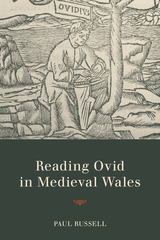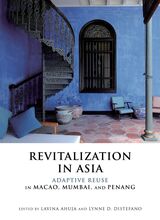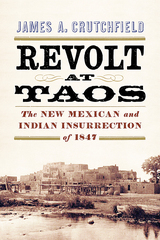
Proceedings of the Harvard Celtic Colloquium, 24 includes “The Celticity of Galicia and the Arrival of the Insular Celts,” by Manuel Alberro; “Reading Aislinge Óenguso as a Christian-Platonist Parable,” by Brenda Gray; “Celtic Legends in Irish Opera, 1900–1930,” by Axel Klein; “‘I wonder what the king is doing tonight’—Looking for Arthur in All the Wrong Places,” by Laurance J. Maney†; “What Future for the Irish Gaeltacht Communities in the Twenty-First Century?” by Nollaig Ó Gadhra†; “Acallam Na Senórach as Prosimetrum,” by Geraldine Parsons; “Traditional and Courtly Themes in a Medieval Welsh Elegy to a ‘Góann Wargann Wery’ (‘A Fair Virgin, Meek and Mild’),” by Laura Radiker; and “Welsh Prophetic Poetry in the Age of the Princes,” by Elizabeth Schoales.
Proceedings of the Harvard Celtic Colloquium, 25 includes “Keltoi, Galatai, Galli: Were They All One People?” by Timothy P. Bridgman; “On Verbal Nouns in Celtic Languages,” by Chao Li; “Cross-Linguistic Discourse Markers in Manx Gaelic and English,” by Marie Clague; “The Acallam na Senórach: A Medieval Instruction Manual,” by Annie Donahue; “Gendered Postcolonial Discourse in the Mabinogi,” by Morgan Kay; “Language Death and Resurrection in the Isle of Man: The Continuity of Manx Gaelic Exemplified by the Use of Inflected Verb Tenses,” by Jennifer Kewley Draskau; “High Kings and Pipe Dreams: Revisiting John Vincent Kelleher’s Theory of Revision to the Early Irish Annals,” by Laurance J. Maney†; and “The Rise of Christian Nomenclature in Medieval Scotland,” by David Morris.

Proceedings of the Harvard Celtic Colloquium, 26 includes “Heroic Recycling in Celtic Tradition,” by Joseph F. Nagy; “On the Celtic-American Fringe: Irish–Mexican Encounters in the Texas–Mexico Borderlands,” by Marian J. Barber; “The Encomium Urbis in Medieval Welsh Poetry,” by Helen Fulton; “Prophecy in Welsh Manuscripts,” by Morgan Kay; “‘Ceol agus Gaol’ (‘Music and Relationship’): Memory, Identity, and Community in Boston’s Irish Music Scene,” by Natalie Kirschstein; “Colonization Circulars: Timber Cycles in the Time of Famine,” by Kathryn Miles; “Up Close and Personal: The French in Bantry Bay (1796) in the Bantry Estate Papers,” by Grace Neville; “In Praise of Two Margarets: Two Laudatory Poems by Piaras Feiritéar,” by Deirdre Nic Mhathúna; “Observations on Cross-Cultural Names and Name Patterns in Medieval Wales and the March,” by Laura Radiker; and “Mouth to Mouth: Gaelic Stories as Told within One Family,” by Carol Zall.
Proceedings of the Harvard Celtic Colloquium, 27 includes “Poets and Carpenters: Creating the Architecture of Happiness in Late-Medieval Wales,” by Richard Suggett; “Revisiting Preaspiration: Evidence from the Survey of the Gaelic Dialects of Scotland,” by Anna Bosch; “The Anoetheu Dialogue in Culhwch ac Olwen,” by Fiona Dehghani; “Homophony and Breton Loss of Lexis,” by Francis Favereau; “The Origins of ‘the Jailtacht,’” by Diarmait Mac Giolla Chríost; “A Confluence of Wisdom: The Symbolism of Wells, Whirlpools, Waterfalls and Rivers in Early Celtic Sources,” by Sharon Paice MacLeod; “The Real Charlotte: The Exclusive Myth of Somerville and Ross,” by Donald McNamara; “Language Shift in Early Twentieth-Century Ireland,” by Máire Ní Chiosáin; and “Conceptions of an Urban Ideal and the Early Modern Welsh Town,” by Sally-Anne Shearn.

Proceedings of the Harvard Celtic Colloquium, 38 collects papers ranging widely on topics of the literary and material culture of the Celtic regions of Ireland, Wales, and Breton in the medieval and modern periods. Several articles concern the self-awareness of the literary elite in Ireland and Wales, whose members respected the traditional forms of their literature but used them to further contemporary purposes. For example, they introduce new references to foreign places and cultures, or use older topographical lore to describe and justify contemporary land use and settlement. Other articles review material culture as it is reflected in literary works of their respective periods and discuss how this in turn illuminates the attitudes of the authors and their intended readers. A number of contributions concern the grammatical structure and linguistic formation of the languages of Ireland, Wales, and Brittany, both early and modern.
The special lecture for the Harvard Celtic Colloquium this year was given by Dr. Aled Jones, Senior Lecturer in Welsh and Medieval Studies at Bangor University, Wales, comparing modern astrophysics to the plasticity of time in medieval Celtic literature, a thought-provoking consideration of congruences in modern and medieval conceptions of time and space. This volume also contains the 2018 Kelleher lecture given by Dr. William Gilles of the University of Edinburgh on a problematic early Scots-Gaelic text, the Harlaw Brosnachadh.

This volume of the Proceedings of the Harvard Celtic Colloquium offers a wide range of articles on topics across the field of Celtic Studies. It includes the Colloquium keynote given by Prof. Barbara Hillers which studied the literary use of folklore, Irish and international, in the Irish tale “Aislinge Meic Con Glinne” (“The Vision of Mac Con Glinne”).
More recent literary topics expand the scope of this volume from the medieval into the early modern period, and into the early twentieth century. Of special interest to scholars of more recent times will be articles on the Irish language in nineteenth-century American print media, and on the unpublished sequel by Muiris Ó Súilleabháin to his memoir Fiche Blian ag Fás (1933), which was published in English as Twenty Years a-Growing.

This volume of Proceedings of the Harvard Celtic Colloquium is graced with two J. V. Kelleher lectures: the 2019 lecture by Máire Ní Mhaonaigh on Irish chronicles and the 2021 presentation by Ruairí Ó hUiginn assessing the Irish genealogical corpus in its sociological context. It also includes Georgia Henley’s 2021 keynote on the differing literary receptions in Norman Ireland and Wales of Geoffrey of Monmouth’s history of Britain and related prophecies.
Other articles in Volume 40 survey a wide array of topics in Celtic Studies, centering on Irish and Welsh material with the smaller language areas appearing as well, and ranging from medieval to modern times. While most are literary or linguistic in their focus, some historical context is also provided.



READERS
Browse our collection.
PUBLISHERS
See BiblioVault's publisher services.
STUDENT SERVICES
Files for college accessibility offices.
UChicago Accessibility Resources
home | accessibility | search | about | contact us
BiblioVault ® 2001 - 2025
The University of Chicago Press









